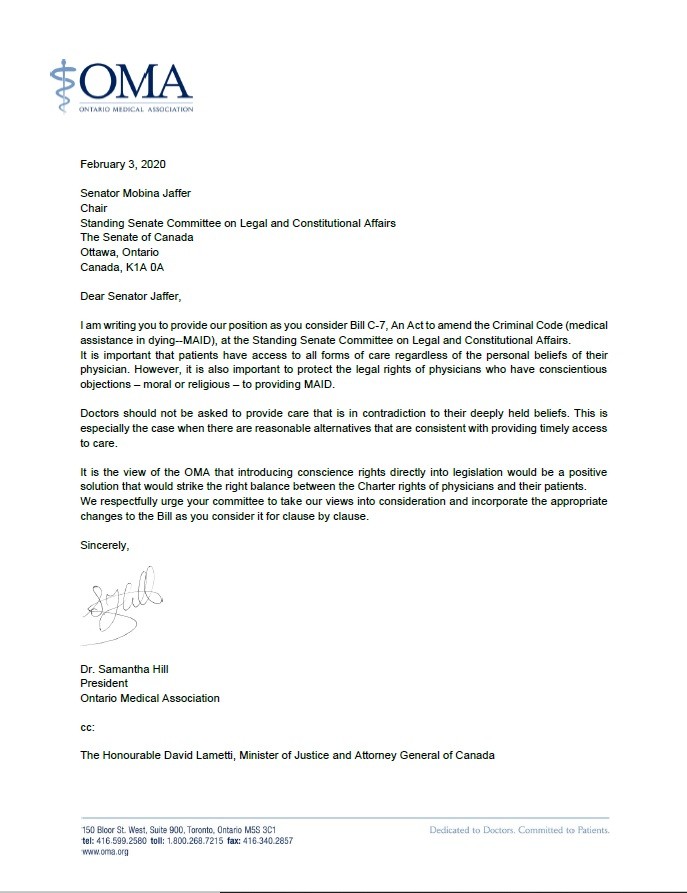News Release
Protection of Conscience Project
The Protection of Conscience Project has written to the Canadian Senate’s Standing Committee on Legal and Constitutional Affairs in support the Ontario Medical Association (OMA), a professional association representing over 31,000 practising Ontario physicians. The OMA has asked the committee to add a protection of conscience amendment to Bill C-7, a euthanasia/assisted suicide bill now before the Canadian Senate.
The current and previous Liberal governments have repeatedly rejected efforts to include such protection for health care practitioners in relation to what the law calls medical assistance in dying (MAiD). A favoured (and correct) response from the government and its supporters is that protection of conscience legislation falls within provincial jurisdiction, so it is not possible to include it in the Criminal Code.
However, that is not the end of the matter.
“Bill C-7 is an exercise of the federal government’s absolute constitutional jurisdiction in criminal law because medical assistance in dying is (non-culpable) homicide and assisted suicide,” wrote the Project Administrator.
“Within that context, Bill C-7 can be amended to protect freedom of conscience without intruding upon provincial jurisdiction. Just as female genital mutilation has been made a crime, Bill C-7 can be amended to make it a criminal offence to force people to become parties to homicide and suicide.”
With the letter was the Project’s submission on this point to a House of Commons standing committee in the fall of 2020.
Contact: Sean Murphy, Administrator
Protection of Conscience Project
email: protection@consciencelaws.org
